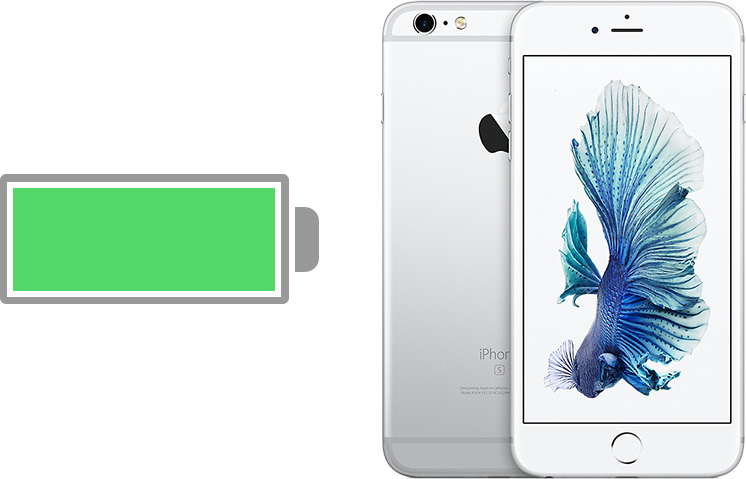iPhone Slowdown Lawsuits Ordered to Be Centralized in Northern California District CourtApple's legal battle against
dozens of iPhone slowdown class action lawsuits will take place in a courtroom near its headquarters.
<img src="

" alt="" width="746" height="479" class="aligncenter size-full wp-image-612772" />
The U.S. Judicial Panel on Multidistrict Litigation today
disclosed it has ordered [
PDF] all iPhone slowdown lawsuits to be transferred to the U.S. District Court for Northern California and, with the consent of that court, assigned to the Honorable Judge Edward J. Davila for consolidated pretrial proceedings.
More than half of the 61 lawsuits—and counting—were filed in the Northern District of California to begin with, so centralization of the remaining complaints filed in other states should help to streamline the legal process.
An excerpt from the order:
These actions share factual questions arising from allegations that Apple included code in updates to its mobile operating system (iOS) that significantly reduced the performance of older-model iPhones. Plaintiffs also allege that Apple misrepresented the nature of the iOS updates and failed to adequately disclose to iPhone owners the impact the iOS updates would have on the performance of their iPhones.
Discovery regarding the engineering of the iPhone and the iOS updates likely will be technical and complex. Plaintiffs assert similar causes of action for false advertising, alleged unfair business practices, trespass to chattels, breach of contract, and unjust enrichment. Moreover, plaintiffs bring these actions on behalf of overlapping putative classes of iPhone owners.
The first lawsuit was filed in
late December, after Apple revealed that it throttles the maximum performance of some older iPhone models with chemically aged batteries when necessary in order to prevent the devices from unexpectedly shutting down. The changes were first introduced in iOS 10.2.1.
Apple didn't mention the change when
iOS 10.2.1 was first released, and in a statement issued a month later, it still only mentioned
vague "improvements" resulting in a significant reduction in unexpected shutdowns.
Apple only revealed exactly what the so-called "improvements" were after Primate Labs founder John Poole visualized that some iPhone 6s and iPhone 7 devices
suddenly had lower benchmark scores starting with iOS 10.2.1 and iOS 11.2 respectively, despite operating at maximum performance on previous versions.
Apple
apologized for its lack of communication in December, and
reduced the price of battery replacements to $29 for iPhone 6 and newer through the end of 2018. Apple also
released iOS 11.3 earlier this week with a new feature that enables users to track their iPhone battery's health and performance status.
Moreover, when users first install iOS 11.3, all performance management features that might have been enabled are automatically disabled. If an unexpected shutdown occurs, however, the performance management is turned back on and
must be disabled manually thereafter—although Apple doesn't recommend it.
In addition to the lawsuits, Apple has also
faced questions from government officials and consumer protection groups in the United States, Canada, France, South Korea, and a handful of other countries.
We've already answered
many frequently asked questions about Apple's power management process, which can be avoided entirely by replacing your iPhone's battery if necessary. Read our guide on
how to get an iPhone's battery replaced at an Apple Store or Apple Authorized Service Provider.
<div class="linkback">Related Roundups:
iPhone 7,
iPhone SE</div><div class="linkback">Tag:
iPhone Slowdown</div><div class="linkback">Buyer's Guide:
iPhone 8 (Neutral),
iPhone SE (Don't Buy),
iPhone 8 (Neutral)</div>
Discuss this article in our forums
<div class="feedflare">
<img src="[url]http://feeds.feedburner.com/~ff/MacRumors-Front?d=yIl2AUoC8zA" border="0"></img>[/url]
<img src="[url]http://feeds.feedburner.com/~ff/MacRumors-Front?d=6W8y8wAjSf4" border="0"></img>[/url]
<img src="[url]http://feeds.feedburner.com/~ff/MacRumors-Front?d=qj6IDK7rITs" border="0"></img>[/url]
</div><img src="
http://feeds.feedburner.com/~r/MacRumors-Front/~4/lAPbnUTAC4k" height="1" width="1" alt=""/>
Source:
iPhone Slowdown Lawsuits Ordered to Be Centralized in Northern California District Court